40 mental health labels stigma
The Truth About Mental Health Labels and Stigma | The Mighty May is Mental Health Awareness Month. One thing that continues to be a difficulty with mental health is the stigma of having a mental illness (perceived or otherwise). For me, I used to believe that having a mental illness meant I had a label I couldn't shake; a label that defined me, that made me feel less. Inferior. Broken. 250 labels used to stigmatise people with mental illness Background: The stigma against people with mental illness is a major barrier to help-seeking in young people for mental health problems. The objective of this study was to investigate the extent of stigma in relation to treatment avoidance in 14 year-old school students in England in relation to how they refer to people with mental illness.
Diagnostic labels: helpful or harmful? - National Elf Service Clearly, labels play a significant role in mental health stigma and should be carefully considered when trying to reduce stigma and improve well-being for people with mental health conditions. The role of labelling in stigma development should be considered within broader contexts of social structures that perpetuate stigma's harms.

Mental health labels stigma
Stigma and discrimination | Mental Health Foundation Social isolation, poor housing, unemployment and poverty are all linked to mental ill health. So stigma and discrimination can trap people in a cycle of illness. You may face more than one type of stigma: for example, you may also be stigmatised because of your race, gender, sexuality or disability. This can make life even harder. Labeling of mental disorders and stigma in young people There were no significant associations between label use and the stigma components of "stigma perceived in others", "reluctance to disclose" and for the most part "social distance". Most mental health labels were associated with seeing the person as "sick" rather than "weak" and accurate psychiatric labels had the strongest effect sizes. PDF The stigma of mental illness: effects of labelling on public attitudes ... labelling as mental illness. Personal attributes. Drawing on previous findings of stigma research a list of eight personal attributes was generated which was intended to cover two important components of the stereotype of mental illness: dangerousness and dependency. Respond-ents were asked to indicate, with the help of a five-
Mental health labels stigma. Psychiatric Labels Cause Harm by Stigmatizing People - Google With the combination of the stigma surrounding mental illness and the internalization of their label, the individual can come to define themselves as a mentally ill person, rather than a person... Seeking help with mental health doesn't mean you're 'crazy or weak ... Burgess hopes that raising awareness about men's mental health will change the stigma of seeking help. Advertisement "If we get that out, where men can say, 'You know what? It's OK to speak with someone.' And that seeing someone doesn't mean you're crazy or weak, or any of the things, the stigma labels that sometimes we put on it," Burgess said. Stigma: Mental Health & Substance Abuse - American Addiction Centers Research has demonstrated that stigma creates obstacles to seeking treatment for substance use disorders or mental illness and leads to negative health outcomes. A group of leaders from the National Institutes of Health define stigma as "negative attitudes toward people that are based on certain distinguishing characteristics." Before You Label People, Look At Their Contents When mental illnesses are used as labels-depressed, schizophrenic, manic, or hyperactive-these labels hurt. Labels lead to stigma -- a word that means branding and shame. And stigma leads to discrimination. Everyone knows why it is wrong to discriminate against people because of their race, religion, culture, or appearance.
Stigmatizing Words, Labels - HealthyPlace When talking mental health, stigma refers to the misinformed perceptions and ideas about mental illness and those with it. It's a big component in why people feel ashamed to have a mental illness and suffer in silence instead of seeking mental health treatment and understanding that mental illness is just an illness. The stigma of mental disorders - PubMed Central (PMC) The stigma attached to mental illness is ubiquitous. There is no country, society or culture where people with mental illness have the same societal value as people without a mental illness. In a survey that included respondents from 27 countries, nearly 50% of persons with schizophrenia reported discrimination in their personal relationships. Diagnostic Labels, Stigma, and Participation in Research Related to ... Stigma associated with the diagnostic labels of dementia and mild cognitive impairment (MCI) can have a significant and negative impact on interpersonal relationships, interactions with the health care community, attitudes about service utilization, and participation in clinical research. The "Attention-Seeking" Label and the Stigma It Represents The "Attention-Seeking" Label and the Stigma It Represents. October 1, 2019. February 2, 2022. The idea of labelling people as attention-seeking is not unique to mental illness, but it's certainly something that seems to come up an awful lot. The labellers might be friends and family, but unfortunately, they may also be health care providers.
Are Mental Illness Diagnostic Labels a Good Idea? - HealthyPlace To be sure, there are disadvantages to slapping people with mental illness diagnostic labels. The current stigma surrounding mental illness can lead to discrimination. This can affect employment, housing, relationships, and other life areas. The mental illness label can become an identity. Removing Self-Stigma from Mental Health Labels | HealthyPlace Seems the word "mental" is unnecessary and redundant label. People can say cancer and relate, treat, and understand without additional labels. People can say depression, ADHD, anxiety and relate, treat, and understand without the word "mental" in front of illness or health. It only seems to create more stigma. 250 labels used to stigmatise people with mental illness - PMC The stigma against people with mental illness is a major barrier to help-seeking in young people for mental health problems. The objective of this study was to investigate the extent of stigma in relation to treatment avoidance in 14 year-old school students in England in relation to how they refer to people with mental illness. Methods Mental health labels can save lives. But they can also destroy them ... 233. 233. A n important Lancet Psychiatry paper has just come out. It is the largest review looking at service user, carer and clinician experiences of mental health diagnosis. For some people ...
The Difference Between Stigmatizing Mental Illness and Labeling It Stigma Is Societal, Labeling is Personal. If stigmatizing mental illness is closely connected to societal notions of normalcy, then labeling yourself because you're diagnosed with mental illness can be the result. Labels are usually words we attach to ourselves, largely because of our experience being diagnosed with a mental illness and ...
Labels Hurt. Examining the Impact of Mental Health Stigma Below are some of the harmful consequences associated with mental health stigma: Increased psychiatric symptoms and reduced prognosis. Reluctance to seek treatment or stick with it. Social isolation Lack of understanding by family, friends, coworkers, or others Fewer opportunities for work, school, social activities, or trouble finding housing
The stigma of mental illness: effects of labelling on public attitudes ... Labelling has practically no effect on public attitudes towards people with major depression. Conclusion: Our findings illustrate the need for differentiation, differentiation between the different components of stigma as well as differentiation between the various mental disorders. Publication types Research Support, Non-U.S. Gov't MeSH terms
Why is There so Much Stigma Surrounding Mental Illness? Mental health stigma stems from an array of factors and misconceptions including: ... Consequently, these labels can be paired with stigmatizing beliefs that prevent people from speaking out. It's more important than ever, with mental illnesses on the rise, that we educate ourselves about mental health stigma, and work towards eradicating it ...

My Life With Bipolar Disorder And My Passionate Journey Towards Kissing Stigma Goodbye!!: Mental ...
Why Labels Can Be Harmful When You Have Mental Illness OCT. 20, 2021 By Cindy Tillory When you are young, society seems to hand out labels like candy on Halloween. Growing up, I was labeled "the Black kid," "the weirdo," "the nerd," "the fat kid." The world around me seemed to dole out these categories without a second thought, and I let them define me throughout my childhood.
250 labels used to stigmatise people with mental illness The stigma against people with mental illness is a major barrier to help-seeking in young people for mental health problems. The objective of this study was to investigate the extent of stigma in relation to treatment avoidance in 14 year-old school students in England in relation to how they refer to people with mental illness. Methods
Mental Health Stigma: Society, Individuals, and the Profession Abstract. Mental health stigma operates in society, is internalized by individuals, and is attributed by health professionals. This ethics-laden issue acts as a barrier to individuals who may seek or engage in treatment services. The dimensions, theory, and epistemology of mental health stigma have several implications for the social work ...
Understanding the impact of stigma on people with mental illness In this paper, we integrate research specific to mental illness stigma with the more general body of research on stereotypes and prejudice to provide a brief overview of issues in the area. The impact of stigma is twofold, as outlined in Table 1. Public stigma is the reaction that the general population has to people with mental illness.
Stigma, Prejudice and Discrimination Against People with Mental Illness Self-stigma refers to the negative attitudes, including internalized shame, that people with mental illness have about their own condition. Institutional stigma, is more systemic, involving policies of government and private organizations that intentionally or unintentionally limit opportunities for people with mental illness.
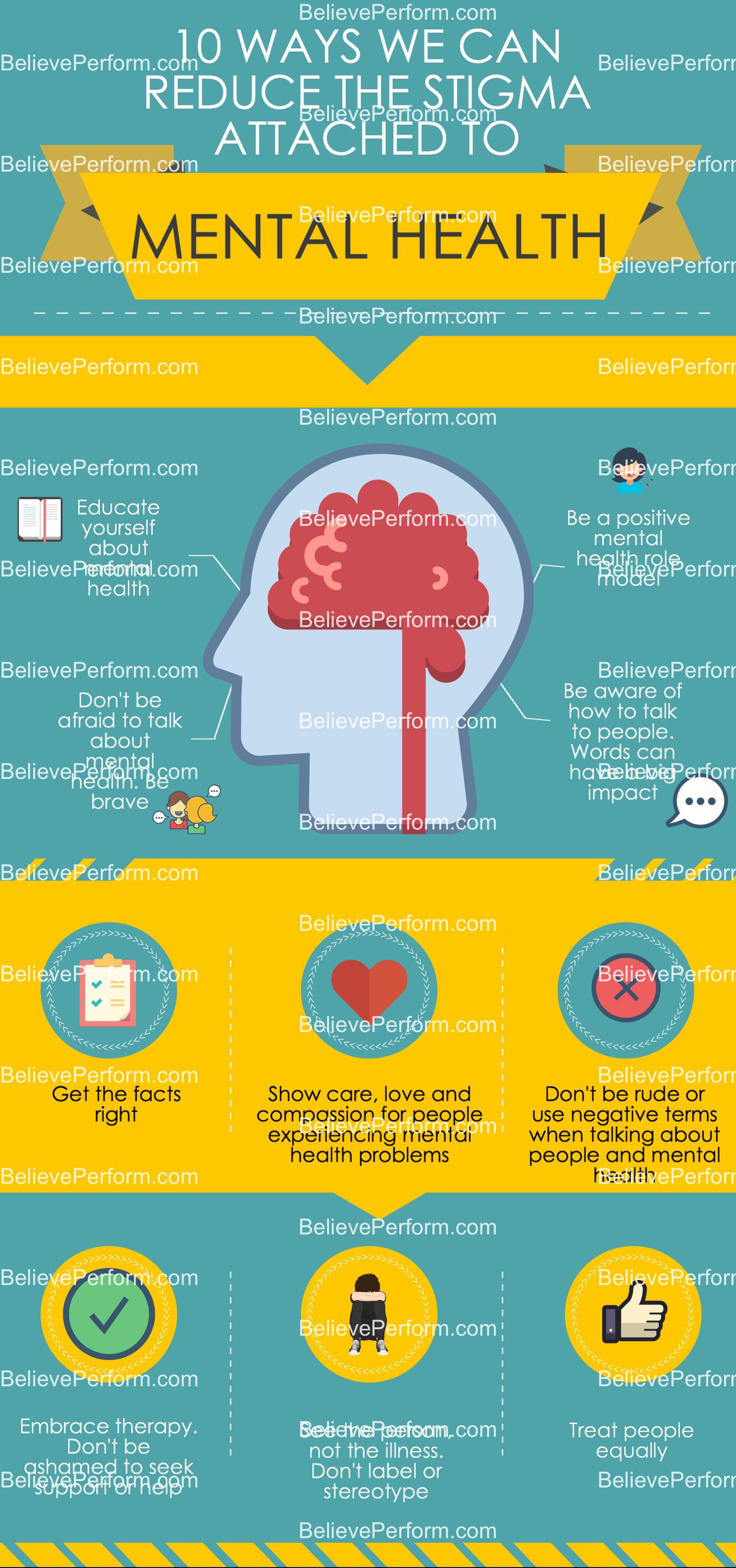
10 ways we can reduce the stigma attached to mental health - The UK's leading Sports Psychology ...
PDF The stigma of mental illness: effects of labelling on public attitudes ... labelling as mental illness. Personal attributes. Drawing on previous findings of stigma research a list of eight personal attributes was generated which was intended to cover two important components of the stereotype of mental illness: dangerousness and dependency. Respond-ents were asked to indicate, with the help of a five-
Labeling of mental disorders and stigma in young people There were no significant associations between label use and the stigma components of "stigma perceived in others", "reluctance to disclose" and for the most part "social distance". Most mental health labels were associated with seeing the person as "sick" rather than "weak" and accurate psychiatric labels had the strongest effect sizes.
Stigma and discrimination | Mental Health Foundation Social isolation, poor housing, unemployment and poverty are all linked to mental ill health. So stigma and discrimination can trap people in a cycle of illness. You may face more than one type of stigma: for example, you may also be stigmatised because of your race, gender, sexuality or disability. This can make life even harder.
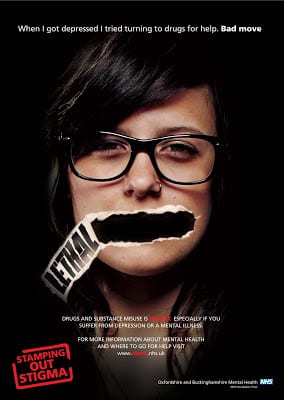

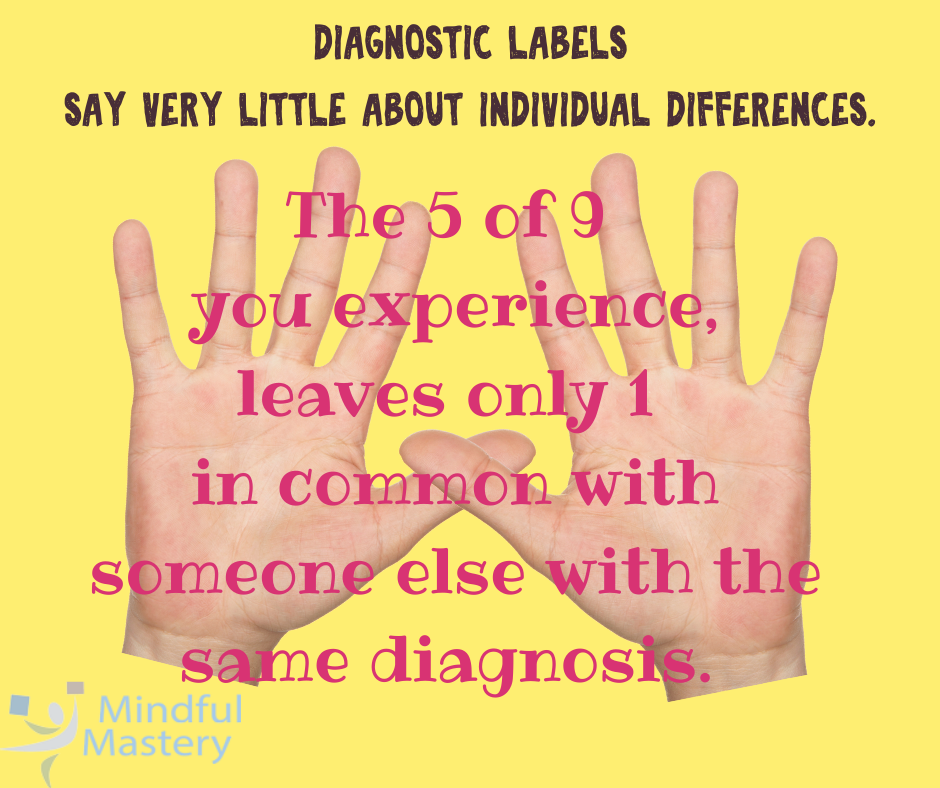
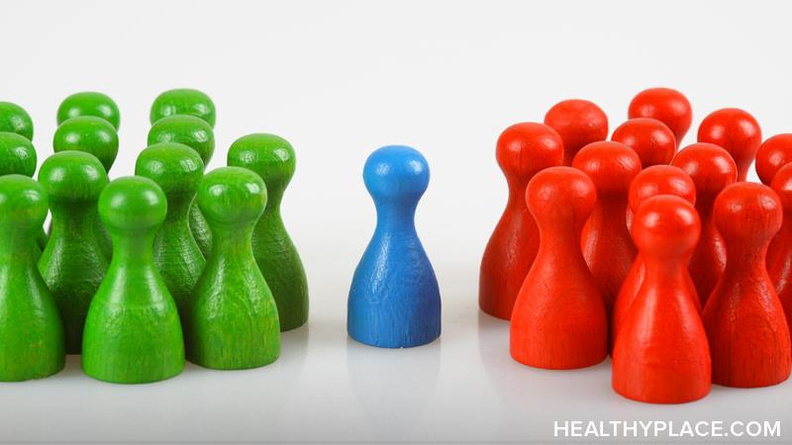
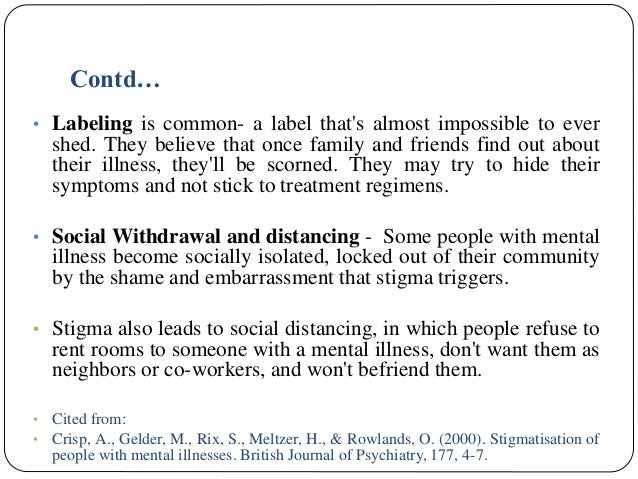

Post a Comment for "40 mental health labels stigma"